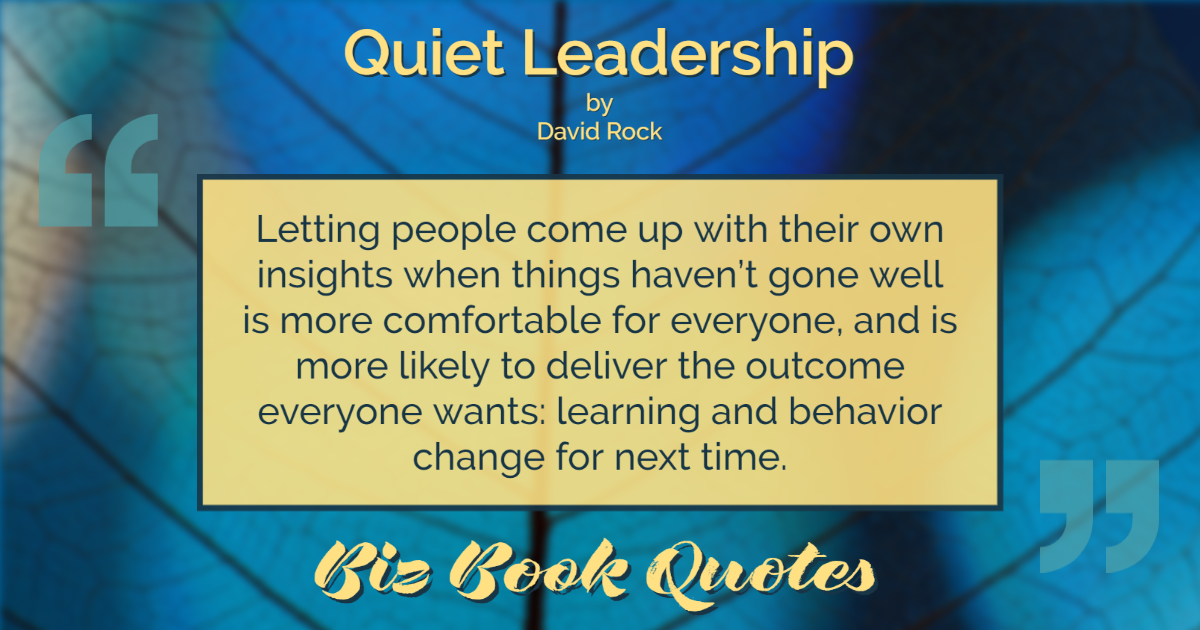 |
Letting people come up with their own insights when things haven’t gone well is more comfortable for everyone, and is more likely to deliver the outcome everyone wants: learning and behavior change for next time.
|
210 |
 |
Perhaps one of the most important reasons we complain is to hold people accountable for their behavior.
|
176 |
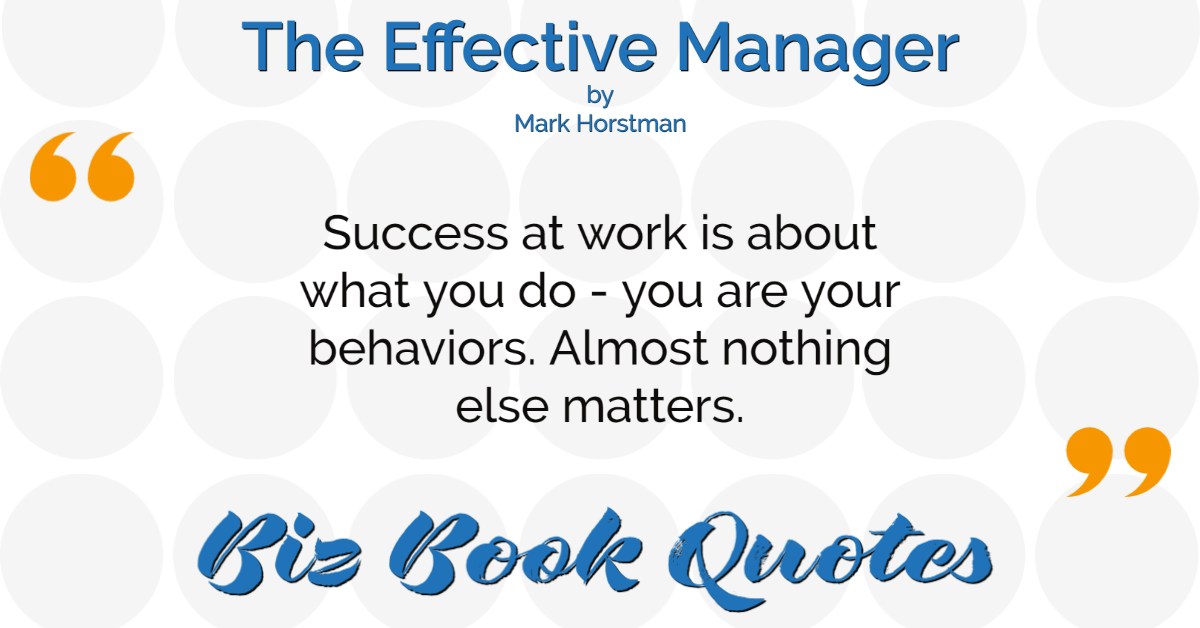 |
Success at work is about what you do – you are your behaviors. Almost nothing else matters.
|
|
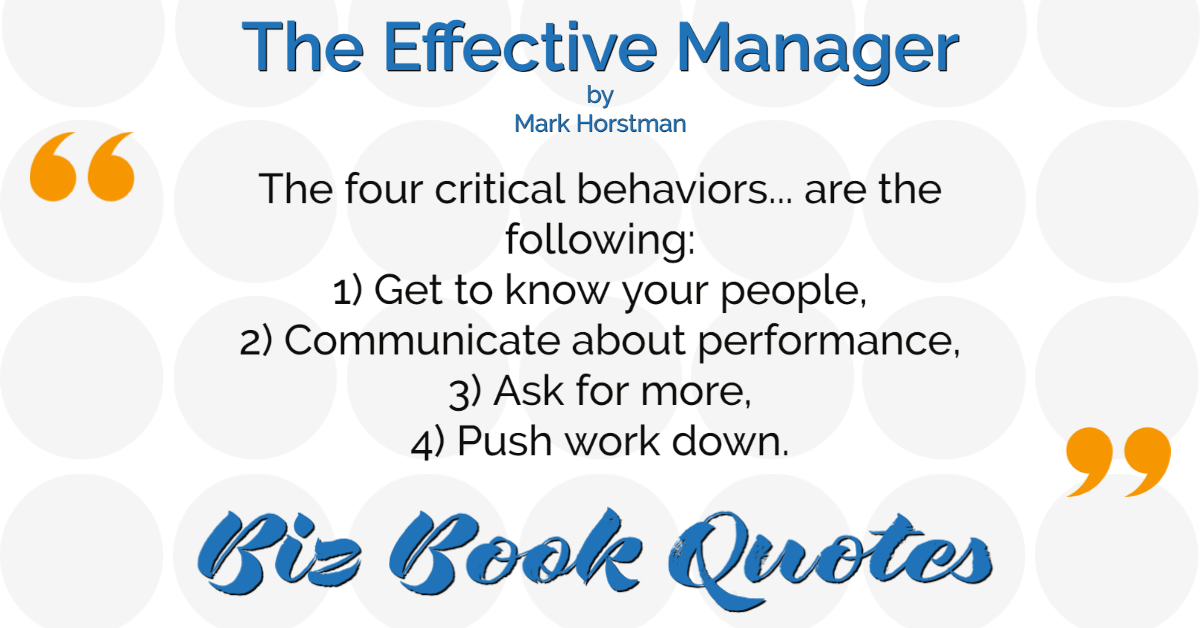 |
The four critical behaviors… are the following: 1) Get to know your people, 2) Communicate about performance, 3) Ask for more, 4) Push work down.
|
7 |
 |
However you manage, your techniques, behavior, and philosophy must be both teachable to others and sustainable.
|
26 |
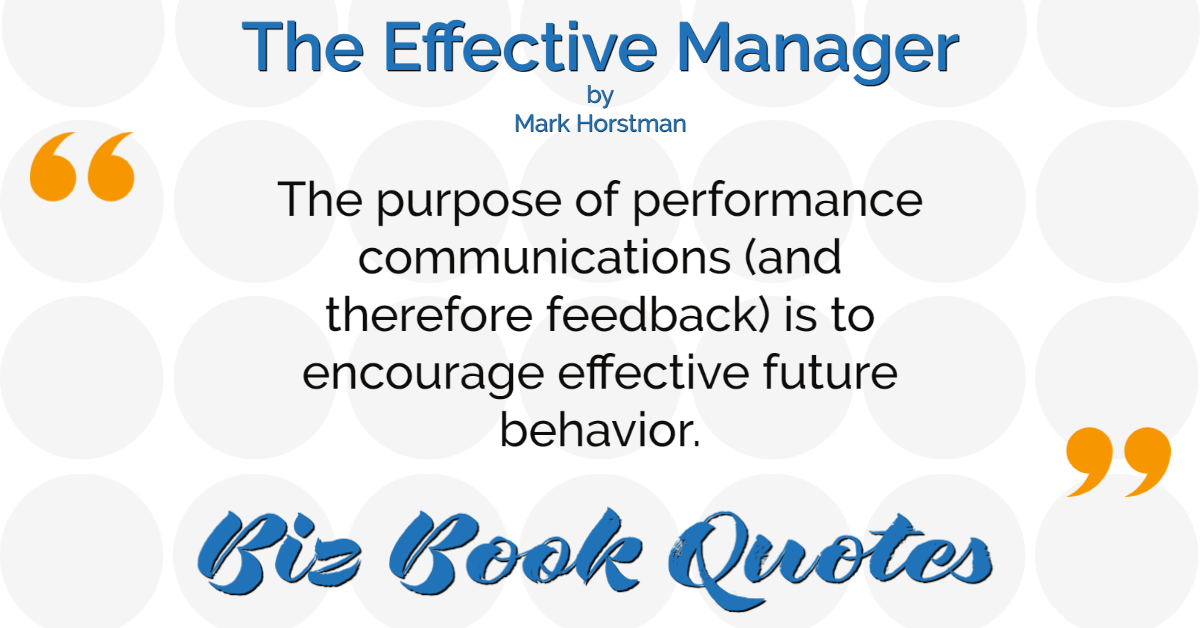 |
The purpose of performance communications (and therefore feedback) is to encourage effective future behavior.
|
108 |
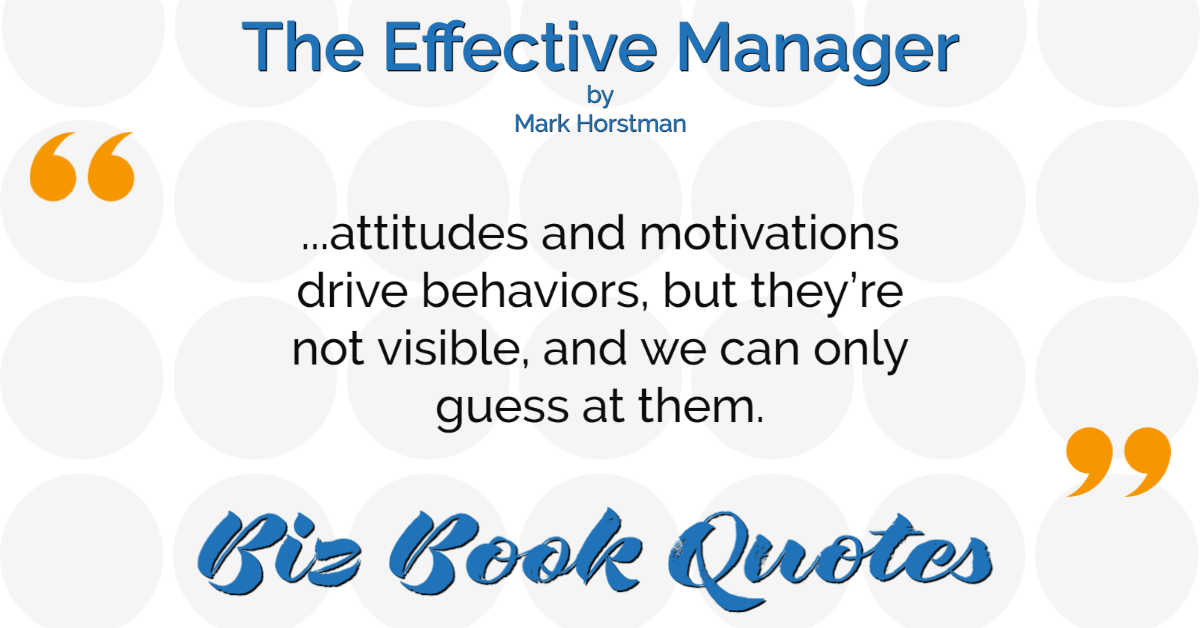 |
…attitudes and motivations drive behaviors, but they’re not visible, and we can only guess at them.
|
115 |
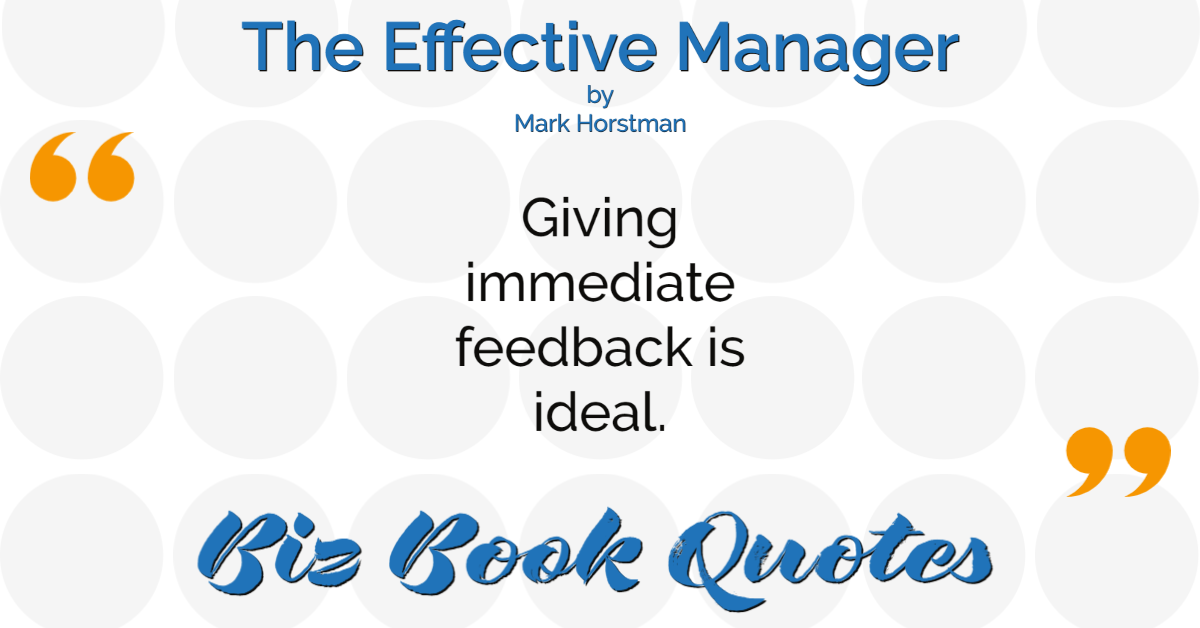 |
When we are giving negative feedback, we are asking the direct to behave differently. We’re not punishing the past mistake, because we’ve already forgiven it. Remember that our focus is on the future, not the past.
|
120 |
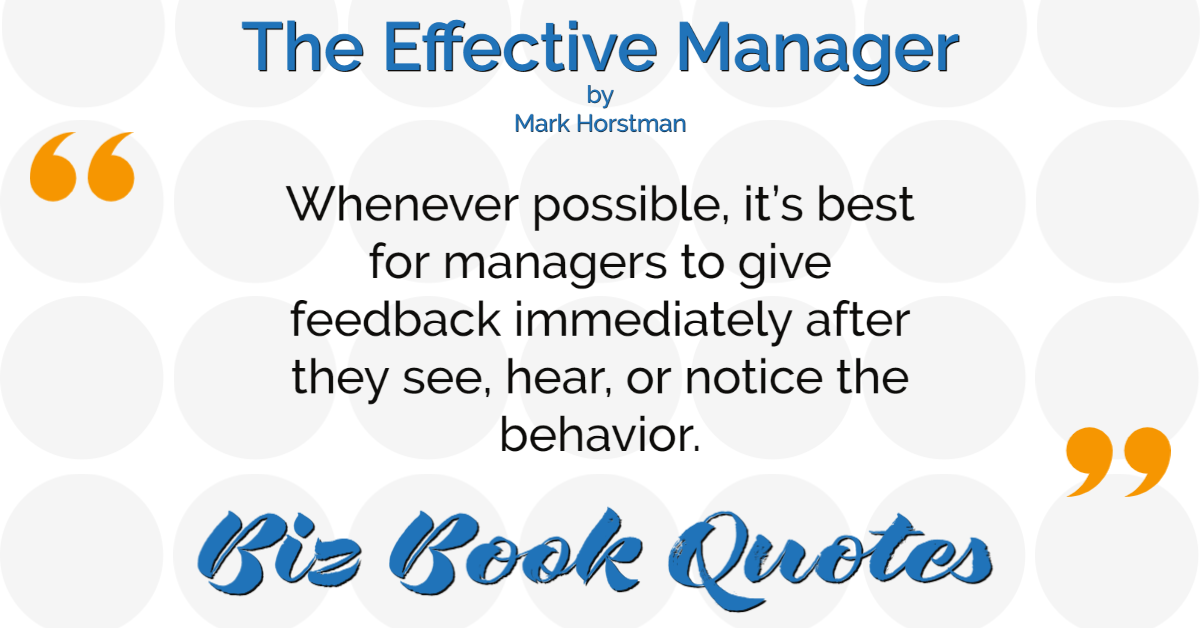 |
Whenever possible, it’s best for managers to give feedback immediately after they see, hear, or notice the behavior.
|
122 |
 |
Really well-delivered systemic feedback is exceptionally hard to ignore and lays excellent groundwork for further efforts if the direct doesn’t change his or her behavior.
|
134 |